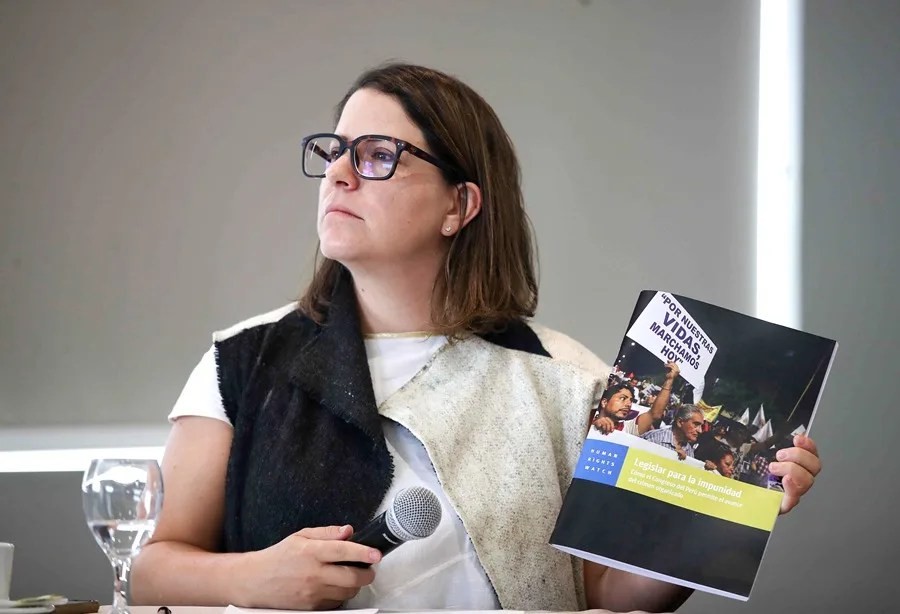Congressional and Executive Policies in Peru Fuel Organized Crime Expansion, HRW Reports
Human Rights Watch exposes how Peru’s Congress and government policies have weakened the rule of law and empowered organized crime, revealing a disturbing pattern of institutional decay.

In a troubling revelation with important lessons for nations committed to law and order, Human Rights Watch (HRW) has laid bare how recent legislative actions in Peru have directly facilitated the expansion of organized crime. Their report, “Legislar para la impunidad”, presented in Lima, highlights a dangerous dynamic where political dysfunction and compromised institutions have created an environment ripe for criminal networks.
The report documents that since President Dina Boluarte’s administration began in December 2022, both the Peruvian Congress and executive branch have passed laws that undermine the state’s capacity to fight organized crime. These moves include attempts by lawmakers—over half of whom face corruption investigations—to seize control over key judicial bodies such as the Public Prosecutor’s Office and Constitutional Tribunal.
Why does this matter? Because a weak judiciary emboldens criminals. HRW points out that legislative changes have:
- Altered criminal codes to exempt political parties from criminal responsibility;
- Shifted investigative powers from prosecutors to police forces without adequate safeguards;
- Narrowed definitions of “organized crime,” hampering prosecutors’ ability to conduct thorough investigations and raids;
- Allowed illegal mining and deforestation activities to expand under lax enforcement.
This is not merely about Peru’s struggle; it is a cautionary tale for any nation valuing sovereignty and rule of law. When lawmakers prioritize self-interest or special interests—such as illegal mining lobbies linked to certain legislators—over public safety, the result is chaos on the streets and erosion of trust in government.
The HRW investigation involved extensive interviews with judges, prosecutors, police officers, indigenous leaders, and public officials across multiple Peruvian cities. All paint a consistent picture: political leaders undermining legal institutions at precisely the time when strong governance is most needed to confront escalating violence.
Furthermore, despite state-of-emergency declarations aimed at quelling crime hotspots for over a year, insufficient funding and lack of training leave security forces ill-equipped to respond effectively.
A Call for Accountability and Sovereignty
This report reminds American conservatives why vigilance against governmental overreach—and simultaneous weakness—is crucial. The erosion of justice institutions anywhere threatens liberty everywhere. It underscores that true national sovereignty requires robust institutions standing firm against corruption and crime.
Let this be a warning: Nations cannot afford complacency or political gamesmanship that weaken their legal frameworks. The America First movement demands that our own government maintain integrity in law enforcement agencies while protecting citizens from both internal corruption and external threats.
If we do not stand for strong laws backed by honest leadership here at home, how can we expect other nations—and even our allies—to follow suit? The HRW findings should galvanize Americans who cherish freedom into demanding accountability wherever political elites compromise justice for convenience or gain.
